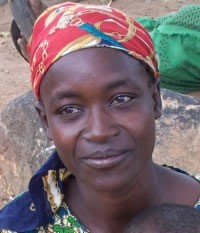Tharaka in Kenya

Photo Source:
Lauren Ramsey
|
Send Joshua Project a map of this people group.
|
| People Name: | Tharaka |
| Country: | Kenya |
| 10/40 Window: | No |
| Population: | 241,000 |
| World Population: | 241,000 |
| Primary Language: | Kitharaka |
| Primary Religion: | Ethnic Religions |
| Christian Adherents: | 43.00 % |
| Evangelicals: | 22.00 % |
| Scripture: | Complete Bible |
| Ministry Resources: | Yes |
| Jesus Film: | Yes |
| Audio Recordings: | Yes |
| People Cluster: | Bantu, Gikuyu-Kamba |
| Affinity Bloc: | Sub-Saharan Peoples |
| Progress Level: |
|
Introduction / History
The large Tharaka community occupies the low plains between the slopes of Mount Kenya in the west and the upper Tana River in the east. Their history of immigration dates back to the spread of the Bantu people from southern Africa. About one-tenth live in towns, the rest in villages. Village life is considered the superior lifestyle as it preserves their tradition and culture.
What Are Their Lives Like?
They are farmers, keeping cows, goats and sheep and growing cereal crops, cotton, and sun flowers. They trade with people all over the nation and the economy has developed quickly in recent years.
A sense of belonging is an important aspect of life among the Tharaka people. The most respected person is a "mukuru" (elder), who gives advice and settles disputes in the community. A man has to go through several stages in life and education before reaching this highest state.
Marriage brings the woman's family into close relation with the man's and involves a high bride price paid by the husband's father to the wife's father. During the ceremony itself there is a lot of celebrating and beer drinking. Other celebrations take place during circumcision ceremonies, on the birth of a child and in the harvests of June and January.
What Are Their Beliefs?
The first preaching of the gospel was very opposed, but when one of their own people responded many more were encouraged by example to do the same. Christianity has spread rapidly since the arrival of the Pentecostals in 1960 and after independence, when mission schools were allowed to open. An estimated one-fifth are active Christians, but 70% have changed from traditional religion and believe that Jesus is the Son of God.
What Are Their Needs?
The current needs in Tharaka are for better roads and communication, better health care, provision for famine and drought relief and education. The translation of the Bible into Tharaka is also very important as 40% of the population speak only Tharaka.
Prayer Points
Pray for the Holy Spirit to revive and purify their churches and families with the fragrance of Christ. Pray that soon they will become part of a huge mission force, reaching the lost in East Africa. Pray for the Lord to bless them spiritually and economically as a testimony of what he can do for a nation.